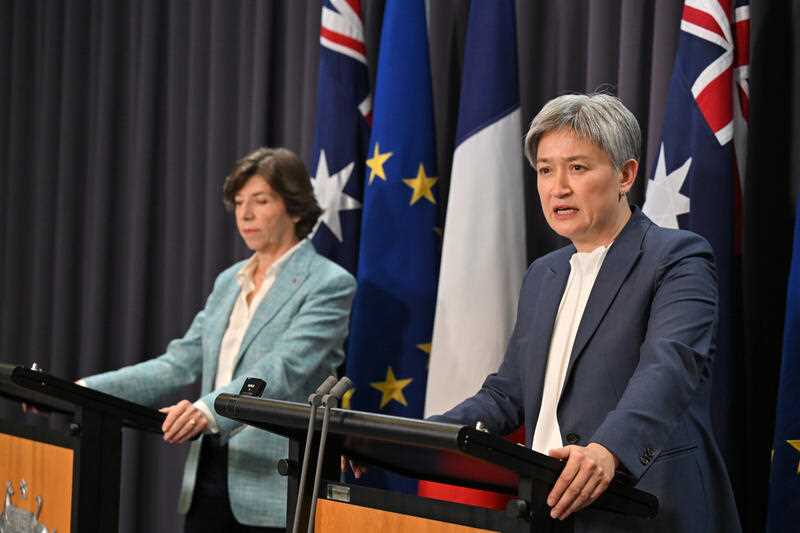As Australia grapples with whether to embrace nuclear energy to reach net-zero emissions France’s foreign minister has encouraged it as part of the renewables future.
The opposition has been calling for nuclear power to become part of the renewable energy mix and to let the market decide on its financial viability.
But the government has consistently ruled it out as too expensive, saying it will stick to cheaper forms of renewables.
The call for Australia to lift its ban on the civil nuclear industry by the French president was backed by French Foreign Affairs Minister Catherine Colonna.
It was a source of energy that would be necessary to reduce emissions to net-zero by 2050, she said.
“By all accounts, all studies from all bodies, we know that we need both to develop renewable energy and to have some nuclear civil capacities,” Ms Colonna told the National Press Club on Monday.
“It is sustainable economically,” she added, pointing to her nation’s move to nuclear capabilities decades ago.
“It’s an example … that we encourage other nations to draw (upon) should they want to follow these things.”
The government would stick with cheaper forms of renewable energy such as wind and solar rather than “what is frankly an ideological agenda” from the opposition, Australian Foreign Minister Penny Wong said when asked about the French president’s comments.
“Now there are countries in the world, France and others, who would have many years ago chosen to go down the nuclear energy path,” she told the Senate.
“That is not the approach Australia has been taking. We have some of the best wind and solar resources in the world.”
Public investment should go towards areas in which Australia had a comparative advantage, she said.
France has also expressed reservations about a treaty banning nuclear weapons.
The treaty would undermine international stability, with the current regime keeping threats at bay, Ms Colonna said.
“We’re quite opposed to this treaty – not specifically visa vie Australia looking at it or not looking at it – but as a matter of principle,” she said.
Labor’s policy is to sign the treaty, although no timeline has been attached.
But key caveats must be met before that, which were in line with France’s reservations, Senator Wong said.
These include that the treaty can be enforced, that it is applied universally and there is consistency with the current framework that is in place.
“The concerns France raises are consistent with some of the issues we have flagged,” Senator Wong said.
By Dominic Giannini in Canberra



